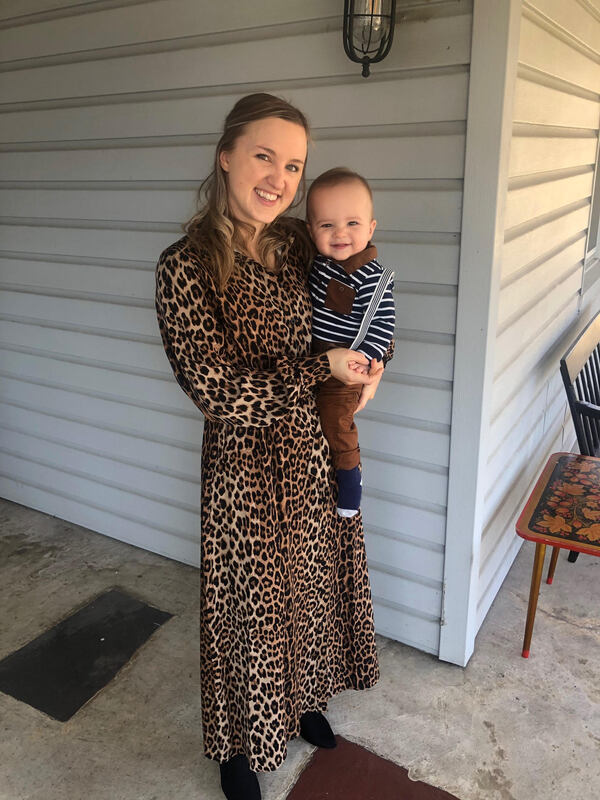|
Is the German language dying? With so many anglicisms in German, will the language eventually be overthrown by English? Die Prinzen have already sung about the many anglicisms in German in their song, "Be Cool Speak Deutsch." English is Everywhere English is everywhere: in industries like transportation, technology, and food, many of the most prominent buzzwords are borrowed from English. Therefore, many Germans can’t avoid speaking some amount of English in their daily lives. This causes many others to suggest that the German language is dying, and will eventually be overthrown by English. This opinion, however, is not valid - the language is simply in a state of constant change. So, the German language is not dying. Much too many people speak German as a native language, and the fact that it’s an Indoeuropean language makes it less likely to die out. It’s also important to note that foreign influences on German are nothing new. Many Germans use English words to sound cool and chic - English-speaking languages drive pop culture and social media, and by using English, Germans feel more connected to the stylish people on TV and the radio. But this doesn’t mean one should fear an overthrow of German by English, because even though Germans often use them, English words don’t completely replace their German counterparts. According to MIller, anglicisms allow for new nuances in the German language. “An ‘event’ can’t exactly replace an ‘Ereignis,’ ‘job’ and ‘Arbeit’ don’t mean the same thing, and one can’t always substitute ‘Kinder’ with ‘kids.’” - Miller Right, so the language isn’t dying, but it has definitely changed. According to Thomas Steinfeld, German is an invention of the late 1800s. Poets, philosophers and scholars tried to create a newer and simpler German. They were successful: they created a language that became intertwined with philosophy, science, and mathematics. But this connection also gave the language a sense of antiquity, which would later be avoided by those who spoke it. That’s why German has changed in many shapes and forms. Most noticeable is the use of the cases, which are often switched or even left out. But these changes don’t represent a deterioration of the language or the laziness of the younger generation, but rather a language that relies less and less on grammar in order to express something. We are All So Connected Language change also depends on immigration: because of the “mistakes” made by immigrants, it’s now more acceptable to say „er ist mehr klein“ instead of „er ist kleiner,” and to switch around word order, for example, to say „er kommt nicht, weil er ist krank.“ But again, that’s not a sign that the language is in decline, but a representation of how Germany is changing as a society. In fact, there’s already a name for this mixed language: Kiezdeutsch. What is Kiezdeutsch? In Kiezdeutsch, words from other languages, like Turkish, are mixed with German. Hinrichs believes that the most influential motivators of language change are immigration, contact between languages, and multilingualism. If that’s true, then we can expect a lot more change in the future. Today, 69 languages are registered in Germany. Multilingualism is nothing new in Germany, and it will always be a part of life. With the new wave of immigration, we can expect to see more change in the language. And that’s a good thing: with changes in the ethnic makeup of the society comes a chance to learn from others while learning about ourselves. This societal change manifests itself in many ways, and of course, language is one of them. Changes in language are tied to language contact and immigration, and in our world, one that is always becoming more and more connected, one can expect that the German language will become simpler, but that doesn’t mean that it will die out. “Languages change because society changes. If we want to stop or control one, we have to do the same with the other.“ - David Crystal The language of Goethe is not the same language that’s spoken today. The reasons for language change are aplenty, but an influential one is language contact and the many immigrants who now live in Germany, who make their own mark on the German language in order to make it their own. If one sees these changes, both in the language and in society, as progress and not detriments, the reality of the situation becomes clearer: change is good for everyone, both immigrants and Germans included. In the end, it all depends on how one chooses to see it: either as a chance for us all to become more connected, or something over which to aggravate one’s self. Languages are constantly changing, but without its long and historical evolution, the German language would not be what it is today. She who loves her language must also be thankful for how it’s changed. To see this post in German, click here. AuthorStephanie Songer is a junior at Temple University and Speak at Home Tonight's summer intern. Steph is majoring in linguistics and German.
3 Comments
Mit so vielen Anglizismen in der deutsche Sprache, wird die Sprache unterworfen von dem Englischen werden? With so many anglicisms in German, will the language eventually be overthrown by English? Be Cool, Speak Deutsch Englisch scheint überall zu sein. Bei dem Transport, der Technologie und dem Essen sind viele Schlusswörter von dem Englischen ausgeliehen. Das heißt, dass viele Deutsche es nicht vermieden können, oft Englisch zu sprechen. Das führte viele Leute auch zu sagen, dass die deutsche Sprache stirbt, und dass es eventuell von dem Englischen unterworfen wird. Diese Stimmung stimmt eigentlich gar nicht - die Sprache ändert sich einfach immer. Also die deutsche Sprache stirbt nicht. Viel zu viele Leute sprechen Deutsch als Muttersprache, und der Fakt, dass Deutsch eine Indoeuropäische Sprache ist, gibt es Kraft gegen Aussterben. Es ist auch wichtig zu bemerken, dass fremde Einflüsse auf des Deutsche nichts Neues sind. Viele Deutsche benutzen englische Wörter, um schick und gebildet zu klingen – englischsprachige Länder beherrschen Popkultur und soziale Medien, und mit der Benutzung des Englischen sehen Deutschen sich als verbundener mit den modischen Persönlichkeiten im Fernsehen und Radio. Aber man soll des Unterworfen der deutschen Sprache nicht fürchten, weil obwohl die Deutsche oft Englisch sprechen, englische Wörter ersetzen deutsche Wörter nicht völlig. Nach Miller bringen Anglizismen bringen neue Nuancen zum Ausdruck. “An ‘event’ can’t exactly replace an ‘Ereignis,’ ‘job’ and ‘Arbeit’ don’t mean the same thing, and one can’t always substitute ‘Kinder’ with ‘kids.’” - Miller
Wir Sind Alle Jetzt Verbindet Also die Sprache stirbt nicht aus, aber es hat sich ja entwickelt. Nach Thomas Steinfeld ist die deutsche Sprache eine Entwicklung des späten 18. Jahrhunderts. Dichter, Philosophen und Gelehrte versuchten es, ein neues und leichteres Deutsch zu schaffen. Sie waren erfolgreich: sie erschufen eine Sprache, die wurde mit Philosophie, Wissenschaft und Mathematik verbunden. Aber mit dieser Verbindung kam auch ein Gefühl von Antiquität dazu – eine Antiquität, die später vermietet wurde. Deswegen hat die deutsche Sprache schon in viele Arten und Weise entwickelt. Am Öffentlichtsten ist die Verwendung der Fällen, die oft verwechselt oder weggelassen werden. Aber diese Änderungen repräsentieren nicht eine Verschlechterung der Sprache oder die Faulheit der Jugendlichen, sondern eine Sprache, die weniger und weniger auf Grammatik abhängt, um etwas zu äußern. Sprachwandeln geht auch um Migration: wegen der „Fehlern“ der Migranten ist es nun akzeptabler „er ist mehr klein“ als „er ist kleiner“ zu sagen und die Wortfolge zu ändern, zum Beispiel „er kommt nicht, weil er ist krank.“ Das ist aber keine Verstümmelung der Sprache, sondern ein Zeichen von der Entwicklung der Deutschen als eine Gesellschaft. Es gibt auch schon einen Namen für diese Mischungs-Sprache, Kiezdeutsch. Was ist Kiezdeutsch? In Kiezdeutsch werden Wörter von vielen Sprachen, wie z.B. das Türkisch, mit dem Deutsch gemischt. Hinrichs stellte fest, dass die einflussreichste Motors des Sprachwandels Migration, Sprachkontakte und Mehrsprachigkeit sind. Wenn das wahr ist, können wir viel mehr Veränderungen erwarten. Heutzutage gibt es 69 Sprachen, die in Deutschland registriert sind. Mehrsprachigkeit ist nichts Neues in Deutschland, und es wird immer ein Teil des Lebens sein. Mit den neuen Migrationen werden noch viel mehr Sprachwandeln bewirkt werden. Und das ist ein Vorteil: mit Wechseln in der ethnischen Zusammensetzung der Gesellschaft kommen auch eine Möglichkeit, mehr von anderen zu lernen und mehr über sich selbst zu lernen. Diese gesellschaftlichen Wechsel manifestieren sich in viele Formen, und natürlich ist die Sprache eine davon. Dem Wechsel der Sprache liegen Sprachkontakt und Migration zugrunde, und in unserer Welt, die noch immer verbundener und verbundener wird, kann man es erwarten, dass die deutsche Sprache einfacher werden wird, aber dass heißt nicht, dass die Sprache aussterben wird. „Sprache ändert sich, weil sich die Gesellschaft ändert. Wollen wir das eine anhalten oder steuern, müssen wir das auch mit dem anderen tun“ - David Crystal Die Sprache von Goethe ist nicht die Sprache, die heutzutage gesprochen wird. Die Gründe für die sprachlichen Änderungen sind unterschiedlich, aber ein einflussreicher Grund ist der Sprachkontakt und die vielen Migranten, die jetzt in Deutschland leben, und die die deutsche Sprache ändern, um sie zu ihrer eigenen Sprache zu machen. Wenn man diese Entwicklung, sowohl in der Sprache als auch in der ethnischen Zusammensetzung, als Progress und nicht Einbuße sieht, wird die Realität klarer werden: Wandel sind gut für alle: die Migranten und auch die Deutschen. Im Großen und Ganzen hängt alle davon ab, wie man wählt, es zu sehen: entweder als eine Chance, für uns alle verbundener zu sein, oder etwas, darüber sich zu ärgern. Sprachen ändern sich immer, aber ohne die lange und historische Entwicklung der deutschen Sprache wäre die Sprache nicht, was sie heute ist. Wer seine Sprache liebt, muss auch der Sprachentwicklung dankbar sein. To read this post in English, please click here.
|
|
glücklich, froh
|
happy
|
|
zufrieden
|
satisfied, content
|
|
(sehr) gut
|
very good
|
|
traurig
|
sad
|
|
geärgert
|
angry, annoyed
|
|
müde
|
tired
|
|
unruhig
|
restless
|
|
erleichtert
|
relieved
|
|
komisch
|
weird
|
|
dankbar
|
thankful
|
|
neugierig
|
curious
|
|
einsam
|
lonely
|
|
verwirrt
|
confused
|
|
begeistert
|
keen, enthusiastic
|
|
betrunken
|
drunk
|
Example Journal Entry
So a typical entry might start like this:
Mittwoch, der 24. Mai, 2017
Liebes Tagebuch,
Heute bin ich sehr dankbar, denn ich habe mein Ziel von 2.000 Follower auf Instagram erreicht. Es macht so viel Spaß mit so viele Leute zu sprechen jeden Tag.
Bis Morgen,
Nikki
You can keep your journal in a Google Doc, in the notes section on your phone, or print out a free, handy PDF that I've created for you!
Let me know if you have any questions!
Nikki Prša
Polish-American Polyglot, Language Expert, German Teacher, M.Ed., married to my dream guy, the Croatian Sensation. Let's connect!
Archives
May 2020
February 2020
April 2019
February 2019
January 2019
December 2018
October 2018
September 2018
May 2018
April 2018
March 2018
February 2018
January 2018
December 2017
November 2017
October 2017
September 2017
August 2017
July 2017
June 2017
May 2017
April 2017
Categories
All
Bilingual Children
Book Review
Catholic
Celebrity Polyglots
Christmas
Croatia
Day In The Life
Definition
Destination Wedding
Deutsch
Dobro Jutro Hrvatska
English
Eurovision
French
Get Fluent Fast
Gift Under $100
Gift Under $50
Greenhouse
House Hunters International
How To Pray In German
How To Pray In Polish
Interview
In The Media
Language Consulting
Language Learning
Language Learning For Kids
Language Links I Love
Learn Croatian
Learn German
Lingoda
Mother's Day
New Student Sale!
Patreon
Perfect Last Minute Gift Idea
Perfect Last-Minute Gift Idea
Polish
Polish American
Polish Recipes
Polyglot
Prayer
Recipe
Slow German
Spanish
#SpeakatHomeTonight
Tiny House Hunting
Tips
Travel
Zagreb











 RSS Feed
RSS Feed